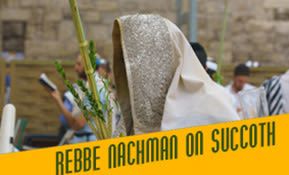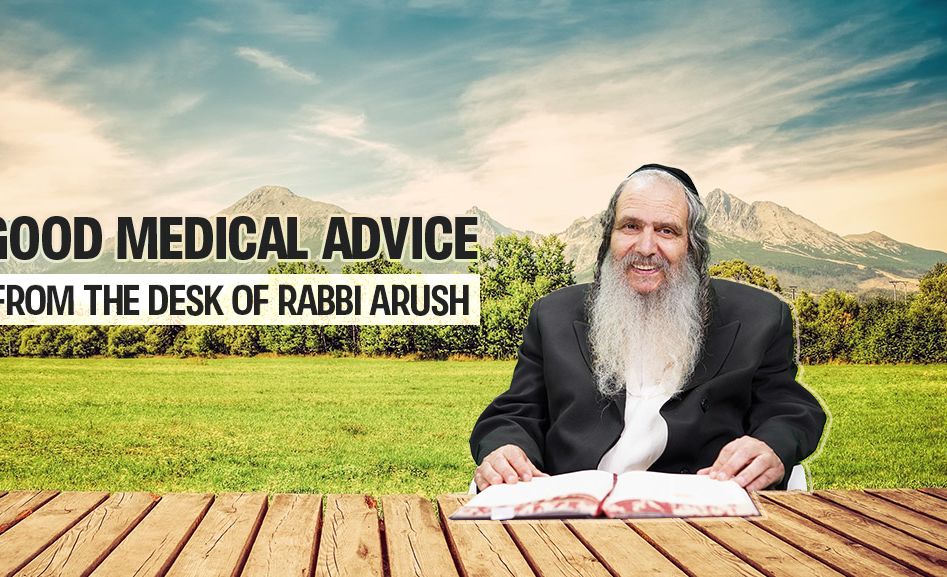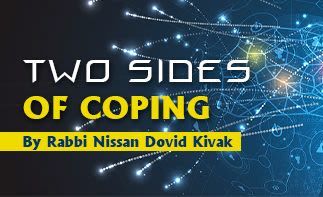
Leading the Way – Part 3
In Uman, a person transcends his own spiritual level on Rosh Hashana, as if he’s soaring a million miles upward. How can this be? The Rebbe pulls him up…

Translated by Rabbi Lazer Brody
Connecting to the Tzaddik, Part 3
Only The King can wipe our slates clean. For our teshuva to be real, we have to make Hashem our King. Rebbe Nachman tells us how to crown Hashem: we do it by confessing our sins to the tzaddik of the generation.
Rebbe Nachman of Breslev was the only tzaddik that ordered his pupils and disciples to confess in front of him. When the Chassidim would come to him before Rosh Hashanah, he’d tell each one individually, “Now tell me what Hashem, you, and I already know.” One by one, the Chassidim would pass in single file by the Rebbe and confess. This happened on Erev Rosh Hashanah, the day before Rosh Hashanah. If they didn’t remember what they did wrong, the Rebbe would remind them. Then, they’d spend the whole rest of the day doing teshuva with tears streaming down their faces. The town of Breslev, and later Uman, was one big teshuva factory on Rosh Hashanah eve. One would go in to the Rebbe then come out a crying penitent. This went on all day long until shortly before sundown.
The Rebbe taught us that anyone who does his best to do teshuva and comes to him for Rosh Hashanah has nothing to worry about all year long. “What are you worried about, since I’m leading the way for all of you,” declared Rabbenu.
Here’s news: the Rebbe is still very much alive and with us. Not in the corporal sense, but spiritually. Without the limitations of a physical body, the Rebbe’s power is ever so greater. Rebbe Nachman’s daughter Sarki once asked him, “Tatty (father in Yiddish), what will be when you are no longer with us in the flesh?” Rabbenu promised his daughter that if she came to his grave site, it would be just like talking to him from an adjacent room.
I’m at a total loss of words to describe what a gift Uman is, that we can still go and speak to the true tzaddik of our generation. Who can describe the holiness or the privilege of being able to come close to the Tzaddik. We just have to yell out our gratitude to Hashem. When we contemplate our good fortune, we can more readily appreciate what Rebbe Natan said, that he was willing to crawl on his hands and feet over a road of knife blades to get to Uman on Rosh Hashanah. One cannot describe what a person merits in Uman. A person is so uplifted in Uman that he transcends his own spiritual level. Spiritually speaking, he ascends a million miles upward. How can this be? The Rebbe pulls him up. The Rebbe takes you higher and higher and shows you what you can attain in this world. The Rebbe gives you a glimpse of what is truly valuable in this world. Once a person has heard one “amen, y’hei shmay raba” in Uman, he doesn’t care anymore about Chinese restaurants or the New York Knicks. All he wants is another taste of true prayer, another tikkun klali, and another page of Gemara. The Rebbe brings out the best in each of us.
Some people think that they don’t need the help of the true tzaddik of the generation. The Gemara proves them dead wrong. In tractate Sota 7b, the Gemara tells that Yehuda’s bones were rolling around in his coffin, in other words that he had no eternal rest. Yehuda was the ancestor of King David and Mashiach, the patriarch of Israel’s most important tribe and a perfect tzaddik. The Gemara tells us that he still needed the prayers of Moshe Rabbenu, the tzaddik of the generation, so that he could have his eternal rest.
If Yehuda the son of Yaakov Avinu needed the prayers of the generation’s true tzaddik, then we certainly do. Yehuda during his lifetime confessed to Hashem, but it didn’t do any good until Moshe Rabbenu prayed for him. We have to confess in front of the generation’s true tzaddik to attain real teshuva and our genuine soul correction.
People have other claims: They say that they’re already connected to a big tzaddik in this generation. Even the biggest tzaddik in this generation needs Rebbe Nachman for his soul correction. Without Rabbenu, even the biggest tzaddik is in big trouble. Even more so, the bigger a person is in stature, the more he needs Rabbenu. The big-name rabbis need Rabbenu much more than the simple man on the street does, because the transgressions of the big rabbis are a hundred times more serious that the sins of a simple Jew. Big rabbis are much more prone to arrogance, to taking advantage of their status, to giving people wrong advice, or to using the religion for their own personal gain. They can’t correct their own souls much less correct other people’s souls. The big-name rabbis should be the first ones on the plane to Uman every year. They need Rabbenu.
We come close to Rabbenu by learning his teachings and applying them to our daily lives. We learn the Rebbe’s teachings, and glean his advice from them. This is how we express our belief in the Rebbe. The doubters raise a brow and ask, “Belief in the Rebbe? Belief in flesh and blood?” Apparently they don’t know what the Torah says in Parshat Beshalach, in Shirat HaYam, a section that we say every single day of the year:
“And they believed in Hashem and in His servant Moses” (Shmot 14:31). The belief in the true tzaddik, the Moshe Rabbenu of our generation, is right out of the Torah.
There’s no difference between Rosh Hashanah with Rabbenu Nachman and Rosh Hashanah with Moshe Rabbenu. In fact, the Rebbe revealed to us that Hashem gave him Rosh Hashanah as a gift. All of creation depends on Rosh Hashanah in Uman. That’s why the Rebbe ordered us to declare, “No one shall be missing.”
To be continued.








Tell us what you think!
Thank you for your comment!
It will be published after approval by the Editor.